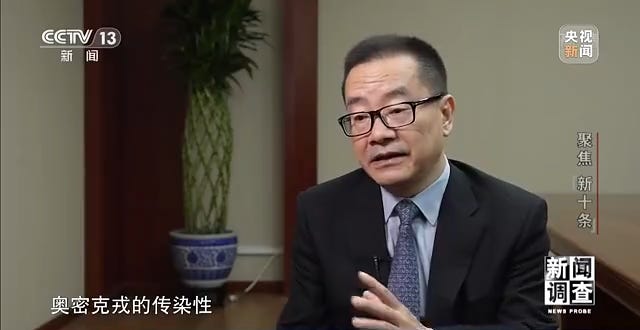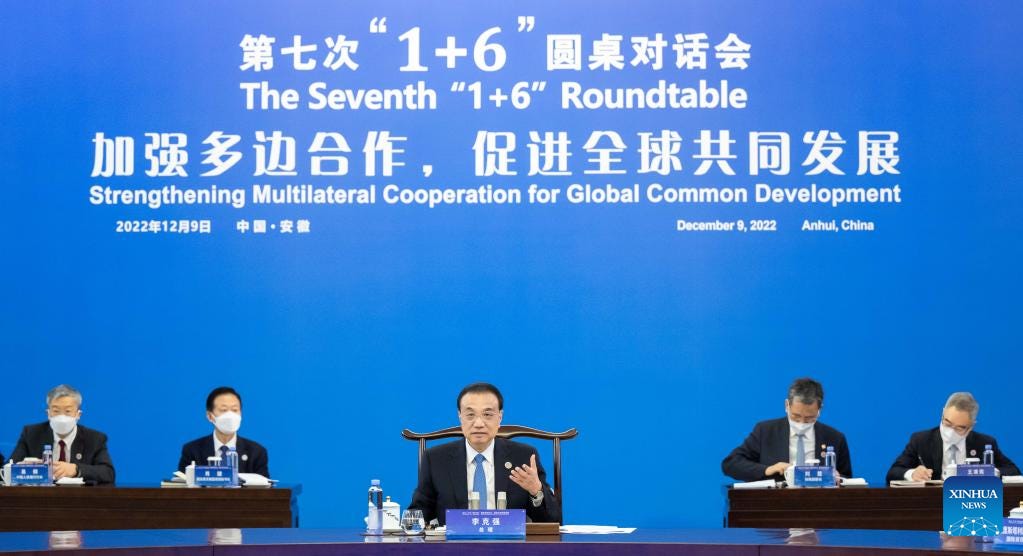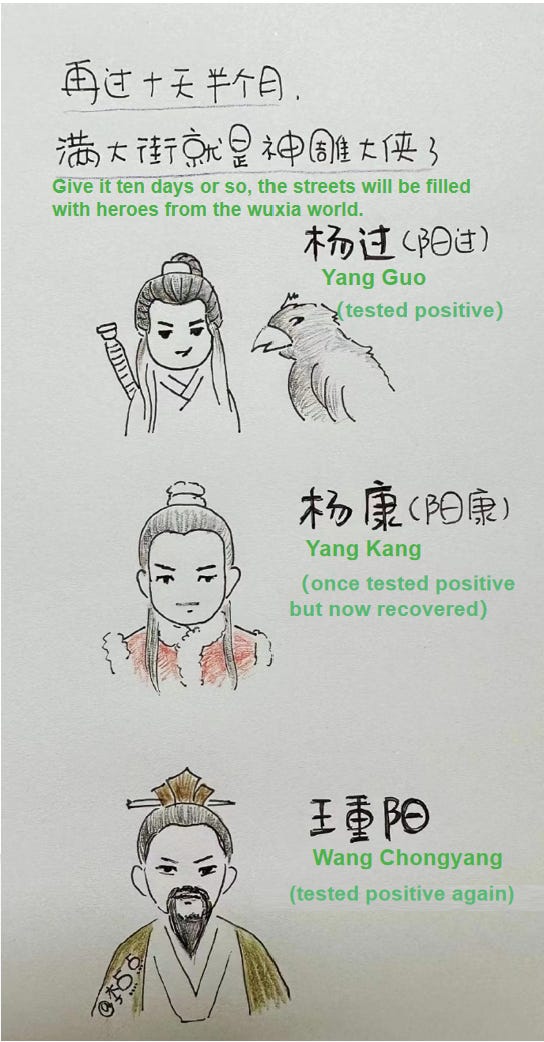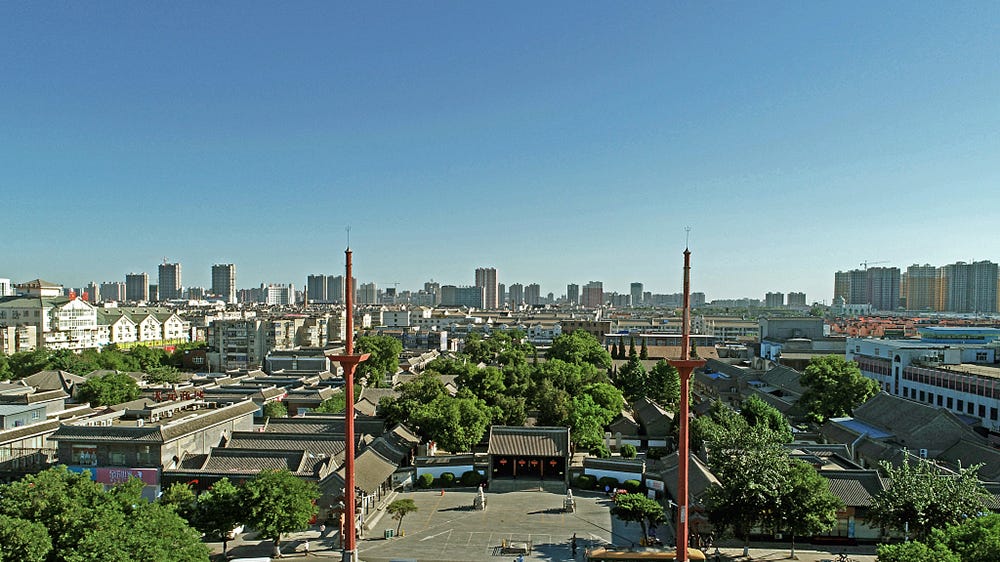A Chinese city's new battle to get life back to "pre-COVID normal"
People's experiences in Baoding may represent a microcosm of most Chinese cities in the near future
On last Wednesday, China released ten new epidemic control and prevention measures, accelerating the recovery to normal life. Clinics designated for COVID-19 patients in Beijing have filled up quickly since the city's pandemic restrictions were lifted last week, Sixth Tone reported. Experts have advised people with mild cases to stay home and leave hospital beds for those with more serious symptoms.
Tong Zhaohui, director of the Beijing Institute of Respiratory Diseases, said in an interview with CCTV that the virus's virulence, pathogenicity, and infectivity will not change dramatically as long as it remains in the Omicron branch. According to current data, 98% of infections in Beijing are asymptomatic and moderate, with the virus primarily affecting the upper respiratory tract.
Zhong Nanshan, the renowned Chinese pulmonologist, said that not all fever patients are COVID patients. Some people might get a fever due to influenza, and some might get both COVID and the flu.
Nevertheless, the number of COVID patients is growing rapidly, and the rise may continue for a while. But China is determined to resume normal order of production and life and reconnect with the world.
On Friday, Premier Li Keqiang welcomed President David Malpass of the World Bank, Managing director Kristalina Georgieva of the International Monetary Fund, and other international trade and finance leaders in Huangshan City, east China's Anhui Province. During their meeting, Premier Li stressed that China cannot develop in isolation from the world, and the world also needs China for its development.
On Friday afternoon, the leaders of the international organizations received a hearty welcome from the populace during a subsequent trip to Huangshan (the Yellow Mountains):

As China is officially setting foot on a road that leads to the end of COVID, people are wondering, what exactly will happen in the next weeks or months? According to Zhang Wenhong, director of the National Center for Infectious Diseases and head of the infectious disease department at Huashan Hospital in Shanghai, the outbreak will peak nationwide within a month and take three to six months for China to recover.
Therefore, a forerunner's story might be a good reference. Baoding, home to 9 million habitants, is located in north China's Hebei Province. Ever since the beginning of December, the city seemed to have entered the "back to pre-COVID normal" mode. People's experiences in Baoding, as well as the public's attitude and preparations, may represent a microcosm of most Chinese cities other than the megacities of Beijing and Shanghai in the near future.

The Paper, a Chinese newspaper based in Shanghai, released a report last weekend on Baoding's journey back to "pre-COVID normal" named Already tested positive and soon to be back on its feet, Baoding is trending on social media 已经"阳过"即将"阳康," 冲上热搜后的保定. The piece won over 100,000 views within a few hours, and people avidly discussed the city on social media over the weekend.
Below is a full translation of the report.
Already tested positive and soon to be back on its feet, Baoding is trending on social media
If you check out the topic on Weibo, you will see that most posts and comments are from Hebei Province. People were mainly talking about "Baoding fully opened up ever since the start of December" and "a large number of citizens are infected." Many also posted their positive antigen test results online.
What happened to Baoding? In interviews with a number of Baoding citizens, The Paper has found that "I tested positive" seems to have become a common or even mundane topic. Almost every interviewee and their family or friends had recently been infected with COVID-19. But they didn't panic in the face of the virus. They isolated themselves at home and had some medicine for influenza. For some of them, the symptoms are waning, and some have seen their antigen tests turn negative again.
"Maybe it's a bit exaggerated to say that everyone is infected, but it's really common among people around me. My close friends and former classmates and their families have tested positive. The same is with my dad. His colleagues and friends got COVID one after another," Mr. Cui joked, saying that under the current circumstances, my family and I are "honored" to be the Condor hero "Yang Guo" 杨过. He added that they would become the hero's father "Yang Kang" 杨康 soon. Cui was quite relaxed about getting COVID.
[Here is a pun joke. Both names are from the martial heroes novel the Return of the Condor Heros by Jin Yong. Tested positive is "阳" Yang in Chinese, and "Guo" 过 is a common aspect marker indicating a completed event. So Yang Guo literally means "already tested positive." "康" Kang can be seen as an abbreviated version of "健康" Jian Kang, healthy. By Yang Kang, Mr. Cui means something like "once tested positive, but now healthy again."]
Illustrator: @李点点 (Weibo account)
In downtown Baoding and surrounding counties and villages, stores, supermarkets, and restaurants have resumed normal operations. Buses and taxis are running on the roads of the city. And no PCR test results or health codes are needed. According to citizens, the government hasn't officially announced the current epidemic control and prevention measures. But some districts have stopped mass testing and lifted lockdowns on residential compounds since November 25. By the time December arrived, residents found that their life was back to normal.
Static management, lockdowns, and nucleic acid tests are fading away in Baoding.
A picture of Baoding. Source: visual.people.cn
The whole family tested positive
In the afternoon of December 8, Cui Ji's antigen test turned negative. This was the fifth day since he got COVID.
On December 1, Cui's dad got a fever, and his body ached. The antigen test showed that Cui's dad was infected with COVID and was the first to catch the disease in the family. "After that, my mom told my dad and me to stay in separate bedrooms and try not to come out. If we must, she told us to wear a mask," said Cui, adding that his mom also asked them to use separate dishes and towels and take medicine on time.
Living under the same roof means that infection is inevitable. Three days later, Cui and his mother also tested positive and started to have a fever, a sore throat, and other symptoms. "It's very similar to the cold I got before, but the body aches were more severe," said Cui.
In the following days, Cui and his parents self-isolated at home. When the body temperature ran too high, they took fever reducers. They also took Lianhua Qingwen capsules 连花清瘟 (a traditional Chinese medicine for influenza) and anti-inflammatories when the fever went down. Around December 6, the father's symptoms were significantly relieved, and he tested negative for three consecutive days. On December 8, except for a dry throat, Cui had no other symptoms. The antigen test from that afternoon proved that he was healed too.
Xu Qinghe was infected in Shijiazhuang (the capital of Hebei Province) in mid-November and was then carted away to Fangcang, makeshift hospitals designed for taking in COVID patients in China. On November 29, Xu returned to his home in Baoding after testing negative for several consecutive days and finishing the required isolation period. Before long, people around him started exhibiting fever symptoms and got "two bars" (tested positive) in their antigen tests, including his parents.
When Xu's parents discovered that they were infected with COVID-19, they called the authorities in the Xuejun community of Lianchi District, which is the community they live in. The community staff told them to isolate themselves at home, and take fever reducers, cold medicine, or cough medicine according to the symptoms. And if things get worse, they may dial 120 to call an ambulance and go to the hospital.
Xu said that his parents are feeling much better right now. "No more fevers, but the sore throat and headaches remain," he added. Their antigen test results were still positive on the day of the interview.
As for the "widespread infection" trending on the Internet, an official of the Publicity Department of Baoding Municipal Party Committee told the media on December 5 that "there are too many exaggerations on the Internet, and many stories are not the truth." There are 10 million people in Baoding. However, even if only ten people post something online, the judgment of netizens will be influenced. Some KOLs don't even live in Baoding, but they spread unverified information just to grab people's eyes. "A lot of things people see online are not true, but that's just the case with the Internet," said the official.
As for what people saw online about the epidemic in Baoding, the official said that he cannot deny them completely, but those situations are definitely not ubiquitous. Things are not as exaggerated as the version on the Internet. Many are biased and can not represent the overall situation in Baoding. "For example, if there are 1,000 people who want to buy medicine, and only one or two don't have access to it. But if those individuals posted the lack of drugs online, the information would be magnified.
According to the data released by the Hebei Provincial Health Commission, from 0-24 hours on December 7, there were no new confirmed COVID cases in Hebei province. Among the 149 newly added asymptomatic cases, none are from the city of Baoding.
According to the real-time epidemic data report on Baidu, Baoding reported zero confirmed cases and asymptomatic carriers on December 7. There were seven confirmed cases on that day, and the accumulated cases of COVID-19 stood at 65.
"Since the regular mass PCR testing is canceled, everyone takes antigen tests at home, so it's hard to know how many are infected," said Cui, adding that his whole family tested positive, but they didn't inform the community officials. "Because we can make sure that we isolate ourselves at home, and we are capable of taking care of ourselves," he explained.
A city that goes back to normal
On November 11, the State Council announced twenty measures to further optimize COVID prevention and control work. Three days later, Shijiazhuang canceled regular PCR testing sites. And the government announced that starting from Dec.15, subways and buses won't check passenger's PCR test results. Citizens only need to make sure their "venue code," the code people scan before entering public places, stays green, and no longer need to provide a 72-hour negative COVID report except for several key places.
All of a sudden, the big strides Shijiazhuang had taken pushed the city under the spotlight. In the face of the abrupt shift in epidemic prevention and control measures, many citizens in Shijiazhuang were cautious, and started preparing medicine for COVID.
Seven days later, due to a surge in infections, Shijiazhuang restarted regular mass PCR testing and lockdown measures in multiple districts on November 21.
Meanwhile, Baoding, only about 140 kilometers from the provincial capital Shijiazhuang, also adopted mass testing in several areas and continued the regular testing and lockdowns in districts with risks.
On December 7, the State Council joint prevention and control mechanism rolled out another ten measures, making further adjustments based on the previous "twenty measures." Hebei Provincial Health Commission also announced adjustments to the province's epidemic prevention and control work on the same day. No need for negative PCR tests or scanning "venue code" when citizens take public transportation or enter public places, except for special facilities like nursing homes, orphanages, medical institutions, childcare institutions, primary schools, and secondary schools.
Moreover, asymptomatic carriers and patients with mild symptoms may choose self-isolation at home if their residency meets self-isolation standards. And they may decide to go to a centralized quarantine facility as well. Moreover, administrative districts will not carry out mass testing anymore.
According to many citizens in Baoding, the city has restored normal life order since the beginning of December.
From December 2, Jingxiu District, Lianchi District, Qingyuan, Laiyuan, Li County, and other places cleared all high-risk areas. Moreover, places with no high-risk areas and with low-risk areas resumed normal life.
On November 17, Cui Ji came back to Baoding from Shijiazhuang. Back then, the community required arrivers to get two PCR tests in three days. And the residential compound he lived in was under lockdown. No one was allowed to leave, and things were sent directly to every household.
But after November 26, Jingxiu Community, where Cui's home is located, didn't arrange mass testing. Residential compounds opened up without notice, and residents started to go out. Three days later, several shops at the crossroads that had been out of business for a long time resumed operations.
Then, Cui received a message that the driving school reopened, and the restaurant he used to have dinners at also resumed offering dine-in service. In pre-COVID days, customers had to wait for a table at dinnertime. The Paper noticed that when searching"Baoding" on Dianpin 大众点评 (a social media platform for consumer reviews, China's equivalent of Yelp), many restaurants, shopping malls, and sports venues are open.
"A lot of shops reopened in recent days, and streets are teeming with life again, no more health codes or negative reports for shops and public transportation," said Zhang Ming, a resident from Baoding. Zhang's boss asked him on December 1 to come back to work the next day. "No PCR tests are needed, but I need to get an antigen test every day. If it's negative, I continue to work. If not, I tell my superiors and isolate myself at home. Once I test negative for three consecutive days, I can go back to work," said Zhang.
On December 8, reporters from The Paper called the city hotline 12345. The official responded that districts and counties of Baoding have adopted normalized epidemic prevention and control measures and have resumed normal order of life and production.
Medical resources in shortage
After the State Council released the ten new "Ten Measures," many people worried that hospitals would be overwhelmed and the medicines would be in shortage. Therefore, many start to prepare drugs in case of an infection.
The same is true with people in Baoding. Whether for citizens who are already infected or not, medicine is a necessity in every household.
All of a sudden, drugs for COVID-related symptoms, including nasal congestion, cough, fever, and body aches, as well as antigen test kits, are flying off the shelves. Lianhua Qingwen,Tylenol, Qingkailing 清开灵, Gan Kang 感康, Banlangen 板蓝根 and Cao Shan Hu 草珊瑚, are all selling fast. On the morning of December 8, reporters from The Paper called a number of pharmacies in Baoding, and all the pharmacies said that antigen tests, Lianhua Qingwen Tylenol, Qingkailin, have been sold out. However, customers can still order Gan Kang, ibuprofen, and Banlangen。
To help citizens get access to medicine, Baoding Administration for Market Regulation recently announced the phone number of 1,296 pharmacies in the three downtown districts, which are Gaoxin District, Jingxiu District, and Lianchi District.”
Cheng Jia, a citizen living in Fuping County, Baoding, said that he and his wife are not infected yet, but his mother-in-law's whole family is infected, and they haven't prepared the medicine. "I contacted several pharmacies according to the government's list and finally bought some drugs."
Cheng Jia's parents-in-law are over 60. He is worried that they are too old to fight the virus, so he called the county hospital for consultation. "The doctor is warm-hearted, and WeChat friended me. According to my description of symptoms, he recommended that they take medicine first. If things don't get better, then I should take my in-laws to the hospital," said Cheng, adding that the good news is that the supply of goods flows freely in the county, and online supermarket apps work well.
According to Baoding Baily Newspaper on December 6, almost all emergency rooms and clinics in the city operate 24 hours a day, including General Hospital and East Hospital of Baoding First Central Hospital; the clinic, the ER, and the fever clinic of the Affiliated Hospital of Hebei University; the clinic, the ER, and the fever clinic of Baoding Second Hospital; the special geriatric clinic, the vaccination clinic, the general clinic, the fever clinic, the ER, the clinic for dog bites of Baoding Third Central Hospital; the general clinic and regular examination programs, the fever clinic, the ER of Baoding Hospital of Beijing Children's Hospital; General Hospital and East Hospital ER as well as the fever clinic of Baoding Women's and Children's Hospital.
Baoding Daily Newspaper also reported that to meet people's needs for cold medicines, Baoding Administration for Market Regulation has been working actively with delivery platforms such as Meituan and ordering medicines from other provinces to fill the supply. At present, there are over 400 full-time deliverymen and over 1,500 part-time deliverymen on Eleme and Meituan (two major delivery platforms) delivering medicines and other products in Baoding.
The Paper asked about the recent surge of infection on December 8, and the official from the city hotline responded that citizens should refer to National and Hebei Province's new prevention and control measures, as well as the COVID-19 Patients Home Treatment Guideline《新冠病毒感染者居家治疗指南》. Moreover, residents may contact the community for help or dial 120 if they spot severe or emergency cases.








